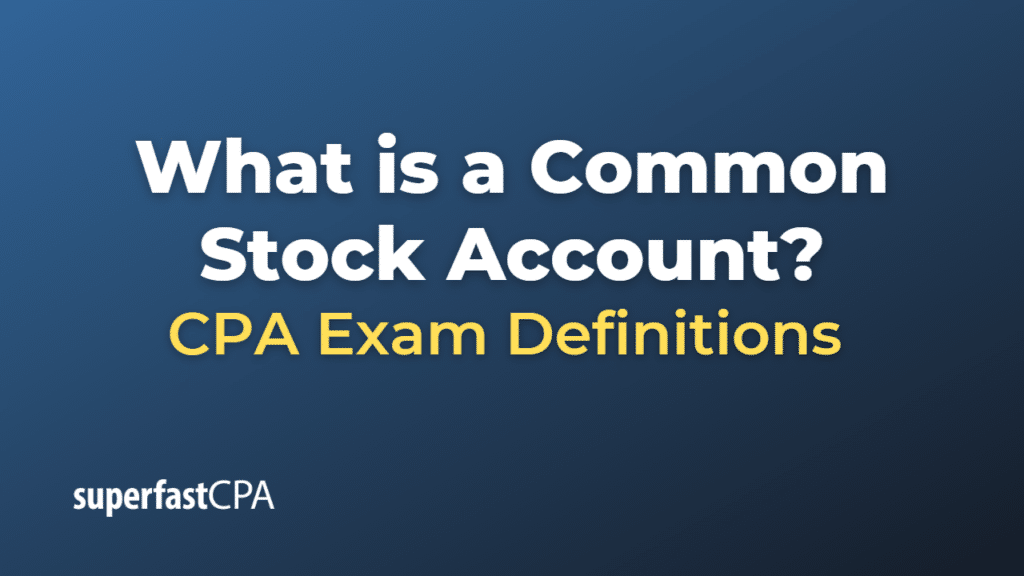Common Stock Equivalent
A common stock equivalent, also known as a stock-equivalent security, is a type of financial instrument that can be converted into, or has the characteristics of, common stock. These instruments may include convertible preferred stock, convertible bonds, stock options, stock warrants, and other securities that have the potential to be converted or exercised into common shares of a company.
Common stock equivalents are important in financial reporting and analysis because they can impact a company’s earnings per share (EPS) calculations and dilute the ownership percentage of existing shareholders when they are converted into common stock. The potential dilution of common stock is taken into consideration when calculating the diluted earnings per share (diluted EPS), which reflects the potential decrease in earnings per share if all common stock equivalents were exercised or converted into common stock.
Diluted EPS provides a more conservative measure of a company’s earnings performance by taking into account the potential increase in outstanding shares due to the conversion or exercise of common stock equivalents. This helps investors and analysts to better evaluate the potential impact of these securities on the company’s future earnings and stock price.
In summary, common stock equivalents are financial instruments that have the potential to be converted into or have characteristics similar to common stock. They are essential for understanding the potential dilution effect on earnings per share and assessing a company’s financial performance by considering the potential impact of these securities on the company’s future earnings and stock price.
Example of a Common Stock Equivalent
Let’s consider a hypothetical example to illustrate the concept of common stock equivalents and their impact on earnings per share calculations.
Imagine Company XYZ has the following financial information for the year:
- Net Income: $1,000,000
- Outstanding Common Shares: 500,000 shares
- Convertible Preferred Stock: 50,000 shares (each convertible into 2 common shares)
- Stock Options: 40,000 options (each exercisable into 1 common share at an exercise price of $10)
First, let’s calculate the basic earnings per share (EPS):
Basic EPS = Net Income / Outstanding Common Shares
Basic EPS = $1,000,000 / 500,000 shares
Basic EPS = $2.00 per share
Now, let’s consider the potential impact of common stock equivalents on the diluted earnings per share (diluted EPS):
- Convertible Preferred Stock:
The 50,000 convertible preferred shares can be converted into 100,000 common shares (50,000 shares x 2). When these shares are converted, there will be no preferred dividends paid, so the net income remains the same. - Stock Options:
The 40,000 stock options can be exercised into 40,000 common shares. However, the company will receive proceeds from the option holders when they exercise the options, which can be used to repurchase shares and reduce the dilution effect. Assuming the average market price of the common stock during the year is $15 per share, the company could repurchase 26,667 shares with the proceeds from the options exercise (($40,000 options x $10 exercise price) / $15 market price).
Now, let’s calculate the diluted earnings per share:
Diluted EPS = Adjusted Net Income / (Outstanding Common Shares + Adjusted Common Stock Equivalents)
Diluted EPS = $1,000,000 / (500,000 shares + 100,000 shares from convertible preferred stock + 40,000 shares from options – 26,667 repurchased shares)
Diluted EPS = $1,000,000 / 613,333 shares
Diluted EPS = $1.63 per share
In this example, the diluted EPS of $1.63 takes into account the potential dilution effect of common stock equivalents (convertible preferred stock and stock options). This provides a more conservative measure of the company’s earnings performance, which helps investors and analysts to better evaluate the potential impact of these securities on the company’s future earnings and stock price.













